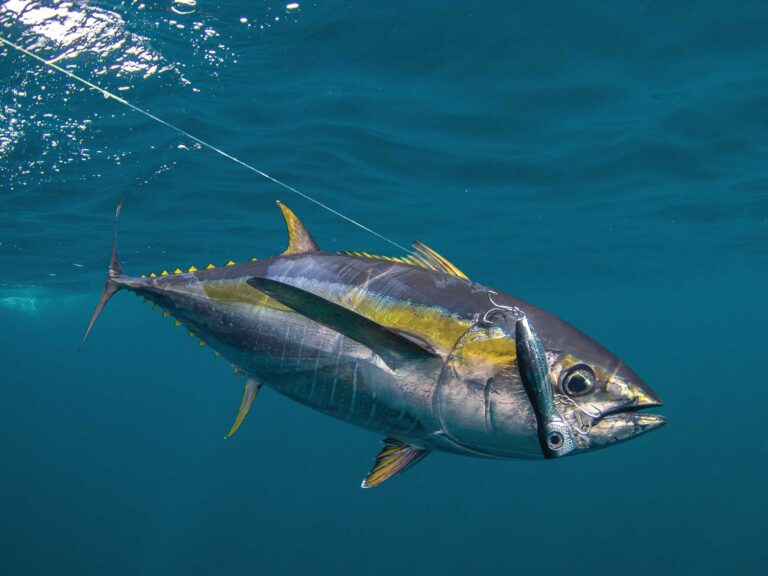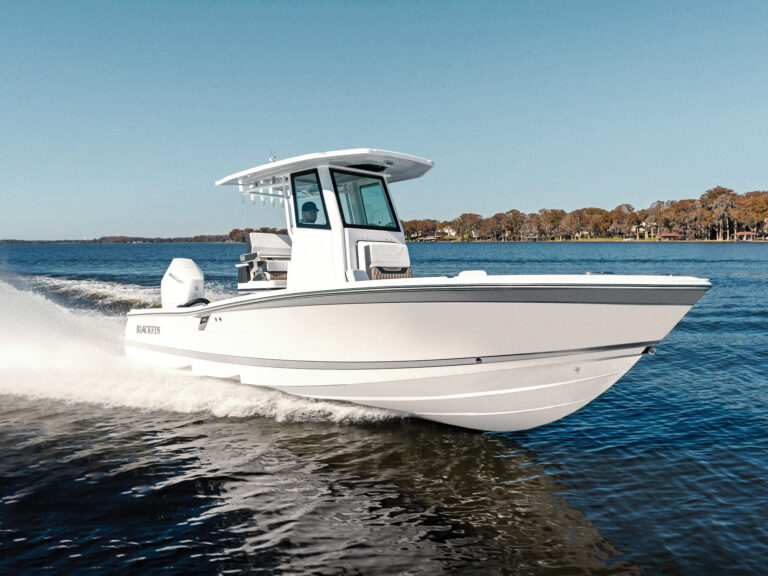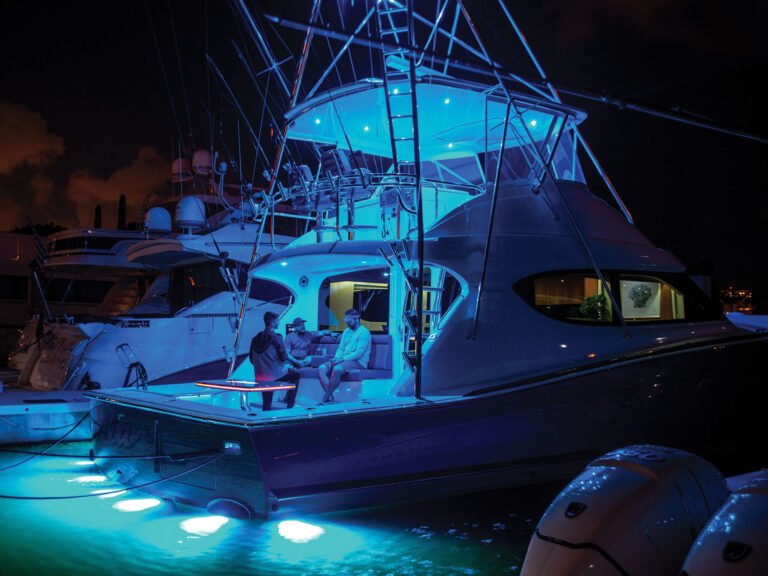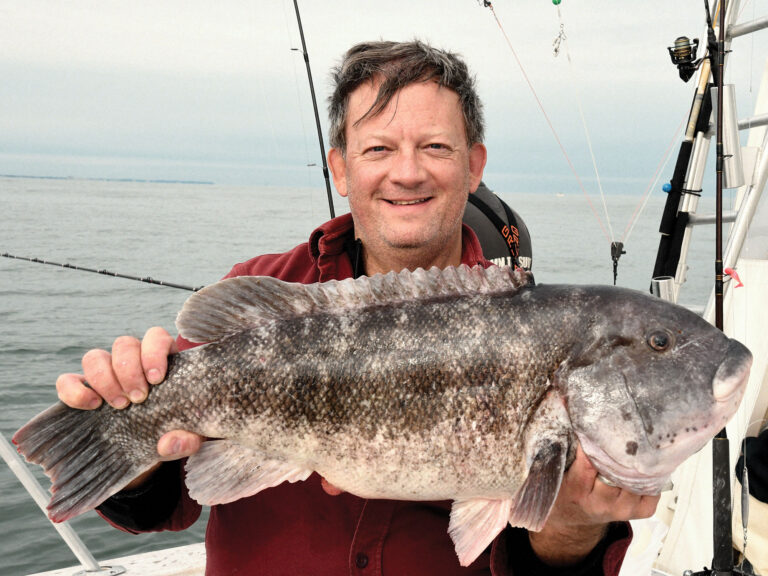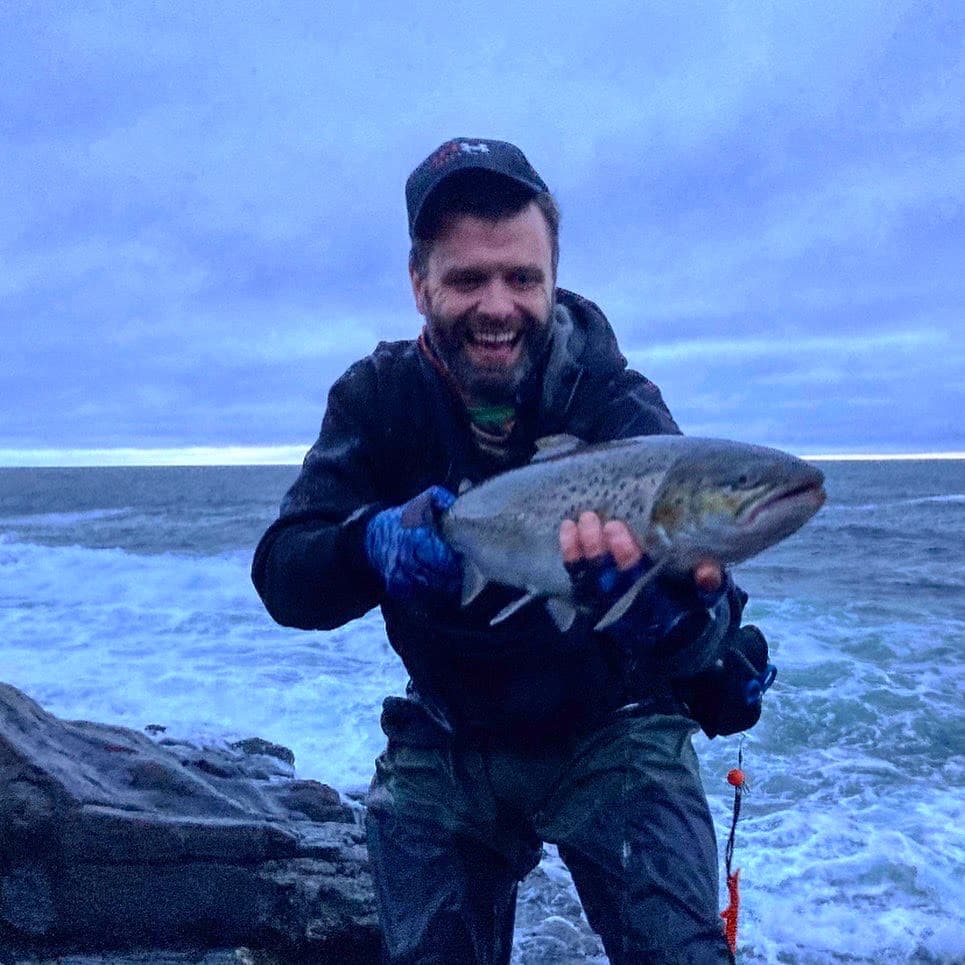
One of the allures of fishing in the ocean is you’re never sure exactly what you’re going to catch. But landing a 10-pound brown trout in the open-ocean in Maine, from shore, on a topwater lure, is not really something you’d ever expect.
“I vaguely knew it was possible to catch a trout in saltwater, but what really are the chances?” said Ian Sawyer, a registered tidal and freshwater fishing guide based out of Lyman, Maine. “After all, I was using a 9-foot surf-rod, a large saltwater reel, 50-pound braid, a huge lure clip, and a big topwater [lure]— about the furthest thing from trout gear you can imagine.”
Fishing at Sunrise
August is generally an excellent time of year to catch a trophy striper in Maine. Sawyer had been enjoying good action that week, and was hopeful for a good bite on that muggy morning in 2021. While striper fishing is often best at night, sometimes false-dawn and sunrise can spur fast action as stripers try to get one more meal in before the day breaks.
Sawyer was fishing his regular early-morning routine; starting in full-darkness and continuing through first light. Everything felt perfect for a good trip, though he fished for a while without getting as much as a bump. “It was cloudy and overcast, and the tide was moving really well,” Sawyer said.
As the sun nosed over the horizon, Sawyer noticed some bait being harassed in front of him, within easy casting distance. It looked like mackerel, so Ian assumed it was stripers pushing the big bait. He switched from a sub-surface lure to a topwater spook as the morning grew lighter. A few more casts, and it was attacked by a sizable fish.
“I knew something was different. Right away it didn’t feel like a striper,” said Sawyer. “I knew there were bluefish around, so I thought it was one of those. It fought pretty hard, and when it got close I saw a dark body and some red. I just assumed it was the bluefish’s gills or something.”
A Surf Fishing Surprise
“When it finally came to the surface, I could hardly believe what I was seeing … I didn’t even know what to do,” Sawyer said. As it would turn out, the red he saw was actually the spots on the trout’s flank. “I’ve caught a lot of fish, in freshwater and saltwater, but this was a shock!”
“There were big rollers coming into the rocks. I never imagined a trout could be in there, mixing it up with other ocean predators,” said Sawyer, who quickly got the fish up out of the heave where it could have been smashed by the large waves. “I just slid it up onto the ledge, and then grabbed it.”
Catching a huge brown trout out in the open ocean, fishing around schools of mackerel, was the last thing on Sawyer’s mind. But he had managed to land a brown trout that was over 27-inches long; larger than any inland trout he’d ever caught. He said the tail took up his entire hand, “It was huge!”
“Of course, I let it go.” While Sawyer wasn’t certain of the regulations surrounding the surf-caught brown, he understood how rare the catch was and decided to return it to the surf. “It was a perfect release. A wave rolled up, and I just tossed it straight into the wave—like a dolphin diving into the water.”
Sea-Run Trout Are Called Salters
Brown trout are native to Europe, Western Africa, and Western Asia. Just like salmon, browns can move out of freshwater rivers and into the ocean as adults. They can live there for years, returning to breed once they grow large. Others may not venture so far, transitioning between freshwater and saltwater environments regularly over the course of a single season as water levels and feeding opportunities favor one environment or the other.
Many anglers don’t realize that most trout—including brown, brook, and rainbow—are capable of this. However, most browns will not leave their river homes, especially stocked-fish found here in the United States. And it’s even more rare that they are caught on striper tackle.
“While many people think of trout eating little bugs and minnows, I’m convinced these fish are eating large Atlantic mackerel,” Sawyer said. He was insistent that the large, older trout in the area were coming out to join the stripers and other open-ocean fish where the best feeding opportunities are. “They are right in there with stripers and bluefish.”
Editor’s Note: Got an interesting catch? We’d love to hear about it! Drop us a line with all the details at catches@saltwatersportsman.com.





